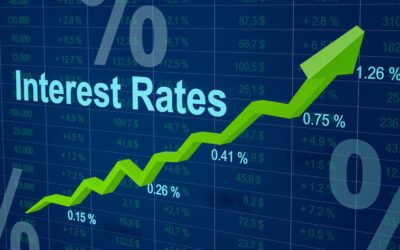The UK news has been filled with talk of government ‘roadmaps’ – conditional timelines mapping the route out of lockdown restrictions and into the so-called “new normal”.
Business owners and individuals alike are keen to see the end of lockdowns, and it’s easy to see why.
As restrictions are lifted and businesses open their doors, more people go back to work on full pay. With more money in their pockets, consumer confidence should rise and spending should return.
In fact, after being restricted to essential-only purchases, interaction and extremely limited travel for so long, you could reasonably expect a small spike as people treat themselves to the luxuries they’ve missed. Most of us are eagerly looking forward to a return to bars, restaurants, music venues, theatres, and cinemas.
As more businesses bring in revenue, there should be more money circulating in the economy – a tide that should lift most ships.
Our business focuses on financial rescue and recovery for individuals and businesses alike, so we want to do all we can to make sure as many people and companies as possible emerge from this crisis intact and ready to thrive.
Whilst remaining optimistic, it is important that we all take an honest look at our personal and business cashflow situations. The road to recovery has a few financial potholes ahead to be aware of.
Can you pay your rent, rates and taxes?
Last September, the UK government announced a “final” extension to protections for commercial tenants. COVID-19 legislation temporarily prevented commercial landlords from using statutory demands and winding up petitions, forfeiting commercial leases and restricted Commercial Rent Arrears Recovery action (CRAR).
These protections have been extended and officially come to an end on 30 June 2021, so if you have arranged any temporary concessions with your landlord during the COVID-19 crisis, such as rent reduction, deferred rent, having a rent or service charge holiday or paying monthly, your landlord will soon be able to legally pursue you for non-payment.
If you think you’ll be unable to meet your rent obligations, it’s time to have a conversation with your landlord to extend or renegotiate your arrangements.
It’s up to them whether they will cut you any slack, but it’s in their interest to help you find a way to survive this economic downturn to avoid losing their income from you and the risk of a vacant property. So don’t avoid this conversation and bury your head in the sand – there is likely to be a deal to be made that works for both of you.
Private tenants have remained legally obligated to pay rent throughout the crisis, however Scotland and Wales have loan funds available for those in arrears.
In England, COVID-19 legislation prevented landlords from pursuing evictions without giving at least 6 months’ notice. The stay on landlords beginning possession hearings was lifted on 29th Aug and possession proceedings through court on 20 Sept in England. The 6 months’ notice restriction lifts on 31st March in Wales and 31st May in England, after which the standard 2 weeks’ notice applies. In Northern Ireland, landlords must provide 12 weeks’ notice under legislation extended to 31st March, while Scotland has banned evictions until the end of September.
As with commercial tenancies, your landlord has the discretion to reduce or pause your rent payments if you ask – but they are under no obligation to do so. Talk to your landlord if you think you’ll have trouble paying rent soon. Universal credit can help with housing costs if you have experienced or are facing loss of income.
Business rates relief for businesses forced to close during lockdown comes to an end in late March / early April in most parts of the UK – Scotland are keeping 100% rates relief for retail, hospitality and leisure until March 2022, and Wales are keeping 100% rates relief for retail, hospitality and leisure throughout the 21/22 tax year. Hospitality and leisure businesses in England receive 100% business rates relief until 30 June 2021, after which rates will be discounted by two-thirds from 1 July 2021 until 31 March 2022.
If you think you will struggle to meet your initial rates payments, contact the council as soon as possible to avoid the legal proceedings that follow a non-payment. You may be able to negotiate a delayed payment or a structured payment plan.
If you deferred VAT payments between March and June 2020 and have payments to make, the payment is due in full by 31 March. If you can’t make the payment by this date, you can opt in to the new deferral payment scheme online – but you must do this before 21 June.
Alternatively you can join the VAT deferral new payment scheme online through HMRC. The sooner you join the more time you have to repay with a maximum of 8 payments should you join as late as the deadline on 21st June. You can join this scheme directly through the government gateway; find out more by clicking here.
Can you afford your debt repayments?
The window for requesting and extending debt repayment holidays closes on 31st March 2021.
This covers consumer and business debts, including:
- Mortgages
- Credit cards
- Loans
- Car finance
- Buy-now-pay-later and rent-to-own
After this date, lenders will be offering “tailored support” for those who have had a six month pause and are still struggling with repayments.
For mortgage holders, the pause on repossessions ends on 1st April 2021.
While COVID legislation ends the legal obligation for lenders to offer these payment breaks on 31st March, it is always at your lenders’ discretion to agree to payment holidays, payment reductions and changes to terms if you are struggling financially.
The “tailored support” will vary from lender to lender, but should involve helping you to create a detailed budget and income projection to assess when and how you will be able to repay your debts. It is in their interest to help you, but it is up to you to reach out to them. Unless you have those difficult conversations, lenders will keep sending you bills and will have no option but to treat missed payments as a breach of your legal agreement with them.
How leveraged is your balance sheet?
Almost £180 billion has been borrowed by 1.6 million UK businesses since March 2020 under the Government-backed coronavirus emergency loans, according to figures released on 25 March.
Nobody would deny the scheme has been a lifeline for businesses, helping to keep millions of people in jobs. However, business owners need to remain mindful of over-leveraging their companies.
Bounceback loans were particularly accessible, with no credit checks, collateral or proof of need required – simply a business bank account and a declaration of turnover. While this was very necessary in order to get financial support distributed quickly, it also meant that companies were very easily able to become overleveraged.
With payments due to begin for many of these loans, business owners need to answer the following questions.
- What impact have coronavirus loans had on the balance sheet?
- When are repayments due to start?
- Can I afford my repayments?
- What impact will debt repayments have on projections for turnover and profit?
Make a plan and don’t go it alone
If any of your bills or debt repayments are affected by the information above, it’s time to sit down and figure out exactly what that means for your cashflow.
If you’re a business owner, that should be a robust business plan including financial projections which include repayment of arrears and loans, bearing in mind any loss or reduction in your expected turnover and profit margins.
For the individual, you need to prepare a detailed and honest budget for the next three or four months, including your expected income, your current expenses, and any additional or increased bills and debt repayments.
Both business owners/directors and individuals should seek professional advice as soon as possible, whether that’s to help you create this picture of your financial situation, or to support you in finding solutions to any shortfalls you’ve identified.
If it becomes clear that you or your business have multiple payments you will struggle with, it may be impractical, messy and stressful to navigate several different negotiations and payment agreements by yourself.
In this situation we recommend calling an insolvency practice like ourselves. A reputable practitioner will be happy to discuss your situation in total confidence and advise you on the best next steps.
If you want to see if we can point you in the right direction, or help you create a clearer picture of your financial position, give us a call for a free confidential chat. Call our offices on one of the numbers below, or send a message through our contact form.
Lisburn: 02892 448112
Derbyshire: 01457 605 871
Lancashire: 01254 914702




